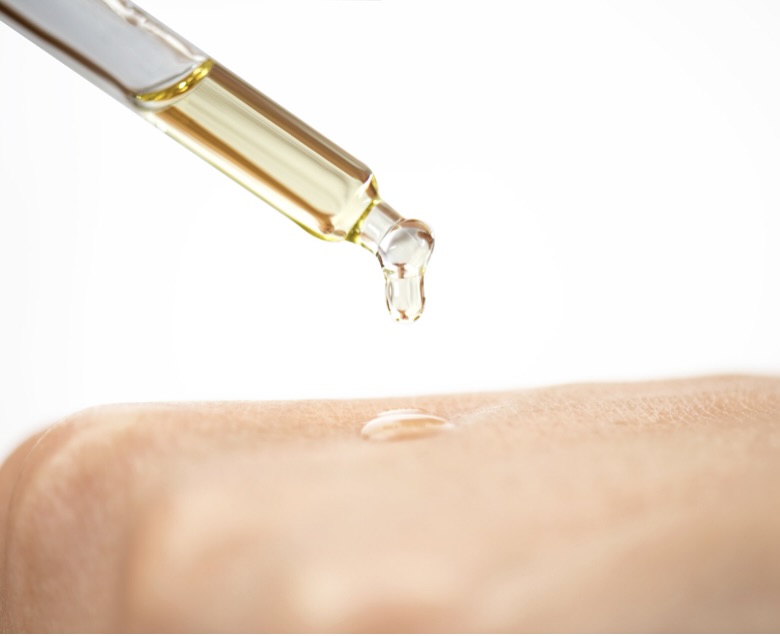
Skin Conditions & Concerns
There are many different types of skin conditions and concerns. It’s important for the cosmetic formulator to understand these conditions when formulating skin care products. Skin care products should assist with the stratum corneum, the skin barrier to support the skin. We talked about this here and here. Let’s go over common skin conditions and concerns below.
Acne
There are different types of acne. Common Acne consists of whiteheads, blackheads, and pimples. Acne can vary from mild, moderate to severe.
Acne is the most common skin condition in the United States, affecting up to 50 Americans yearly.
Acne products are considered OTC (over the counter) drugs and therefore must go through the approval process by the FDA.
Types of Acne:
- Comedo is a hair follicle that is clogged with dead skin cells and oil. It is a basic acne lesion. These can develop into whiteheads or blackheads.
- Comedones is the plural for comedo.
- Whitehead is a closed comedo and non-inflammatory.
- Blackhead is an open comedo and non-inflammatory.
- Papule is a comedo that is inflamed and forms bumps on the skin.
- Pustule is a comedo that is inflamed and typically filled with pus.
Acne Mechanica
Acne mechanica is caused by friction, pressure and heat and can be caused by wearing hats, caps.
Hormonal Acne
Hormonal acne breakouts are cyclical and appear monthly usually around the mouth area in clusters and can contain pus.
Rosacea
Rosacea is a chronic and a treatable skin ailment with flare ups and remissions. It should be treated by a dermatologist. Rosacea typically develops at later ages, 30+.
Usually, fair skin is more susceptible to rosacea. Rosacea varies from mild to severe and generally worsens in time. There is no proven cause of rosacea.
Signs or Symptoms of Rosacea:
- Persistent Redness
- Skin Thickening
- Flushing
- Bumps and Pimples
- Visible Blood Vessels
- Eye Irritation
- Burning or Stinging
- Swelling and Dryness
It is key to avoid skin care products and ingredients that trigger it. It can also be triggered by exercise, heat, sun, wind, saunas, drugs, alcohol and certain foods like spicy food.
Products for rosacea skin are OTC drugs and regulated by the FDA and must be approved.
Skin care products need to be non-irritating, gentle, calming, soothing and hydrating to the skin and help to reduce inflammation. Serums are great for rosacea skin.
Hyperpigmentation
Hyperpigmentation is a condition when patches of skin that become darker than surrounding areas of skin.
Types of Hyperpigmentation:
- Age Spots are brown, tan, or black spots that appear on skin with sun overexposure.
- Melasma are large patches of darkened skin.
- Post-inflammatory hyperpigmentation are spots or patches of darkened skin that appear after an inflammatory skin condition, such as acne or eczema.
Hyperpigmentation is caused by too much exposure to the sun, injury, UV light and medications. Many people use topical treatments to treat hyperpigmentation.
Limit exposure to the sun and use a sunscreen with an SPF of 30 or higher to protect the skin and stop and hyperpigmentation or age spots from darkening.
Licorice extracts may lighten hyperpigmentation. Research suggests that a licorice extract called, glabridin can have anti-inflammatory, antioxidant, and skin-whitening effects.
Wrinkles
Wrinkles are creases, folds or ridges in the skin. They naturally develop over time as the skin ages. Wrinkles occur when the skin gets thinner from the loss of elasticity.
Parts of the skin that receive the most sun exposure may wrinkle first. Facial expressions can lead to wrinkles over time. Other factors that can lead to wrinkles include: smoking, dehydration, some medications, environmental or generic factors.
Wrinkles are a natural part of aging and effect everyone. Many people however, dislike the appearance of wrinkles and look for methods to reduce wrinkles. The anti-aging market in the United States is worth 50 billion dollars per year.
Eczema and Psoriasis
Read this blog to learn more about eczema and psoriasis.
Ingredients
There are many ingredients and formulations that can help skin conditions and concerns: acne, wrinkles, rosacea, hyperpigmentation when added to skin care products. These ingredients and formulations are taught in the Pro Natural Skin Care Formulation Course.
You might also like

